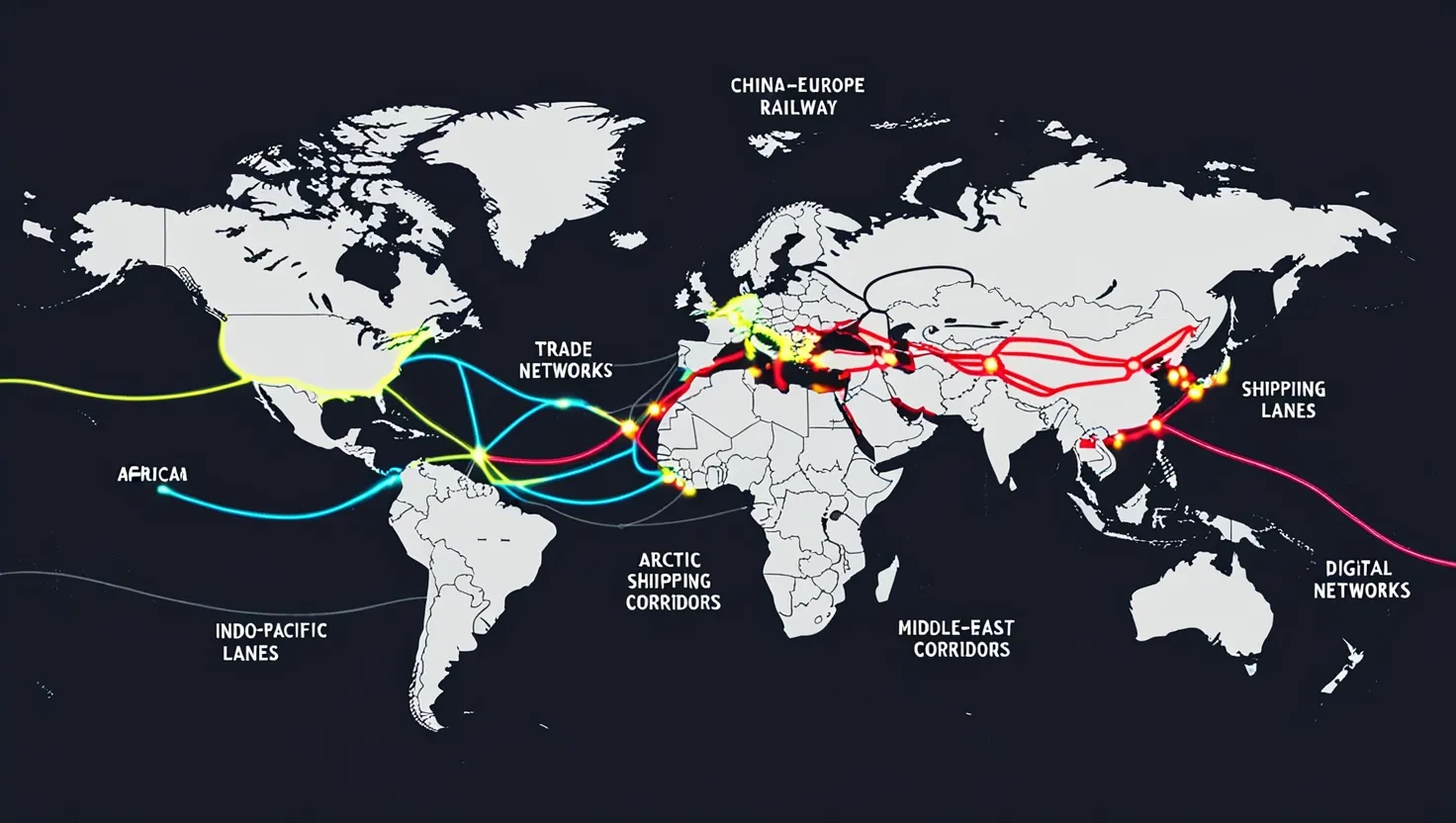As we step into an AI-driven future, the intersection of AI ethics and leadership has become a critical focal point. The question on everyone's mind is how we can ensure that these advanced technologies align with our ethical values. For leaders, this is not just about embracing innovation, but also about taking on the responsibility of ethical decision-making.
The Evolution of Leadership Decision-Making
Traditionally, leadership decisions were based on experience, intuition, and historical data. However, with the advent of AI, this landscape has undergone a significant transformation. AI assists leaders by processing vast amounts of data quickly, identifying patterns, and providing insights that can guide strategic decisions. This has enabled leaders to make decisions based on real-time data, predictive analytics, and machine learning models, reducing response times to market changes and external disruptions.
But AI is not just a tool for speeding up decision-making; it also has the potential to eliminate biases. By relying on data and algorithms rather than subjective opinions, AI reduces the likelihood of decisions being influenced by unconscious bias, leading to more objective and fair outcomes. This shift is making leadership more inclusive and equitable, with decisions based on merit and performance rather than personal preferences or biases.
The Ethical Imperative
As AI assumes more autonomous roles, the ethical implications are becoming increasingly complex. Leaders must balance AI-driven insights with emotional intelligence and human judgment. AI lacks the ability to consider nuances like ethics, empathy, and creativity, which are essential in decision-making. Therefore, leaders must combine AI-driven data with their human perspective to make well-rounded decisions.
Ethical AI governance is no longer a luxury but a necessity. Leaders are now focusing on delivering ethics-based trainings to their workforce and board of directors. These trainings are crucial in ensuring that professionals understand the ethical implications of AI and can make decisions that align with the organization's values. For instance, 76% of organizations conduct ethical AI trainings for their workforce, and 63% for their board of directors.
Industry-Specific Ethical Frameworks
Crafting industry-specific ethical frameworks is vital. Each sector has unique demands and challenges, and a one-size-fits-all approach to AI ethics is insufficient. Leaders need to prioritize user consent and establish clear guidelines for responsible AI development. This involves forming ethical review boards and integrating ethical oversight into existing data governance frameworks.
For example, in the healthcare sector, AI must be developed with strict guidelines to protect patient data and ensure that decisions are made with the utmost care and respect for human dignity. Similarly, in finance, AI must be transparent and accountable to prevent fraud and ensure fair financial practices.
Empowering and Educating
Empowering and educating employees on AI ethics is a key strategy. Company-wide education efforts can foster an environment where every employee is encouraged to voice concerns and contribute to ethical solutions. This not only ensures that AI is used responsibly but also promotes a culture of integrity and trust within the organization.
Leaders should encourage a culture where teams collaborate with AI, using it as a tool to enhance creativity and innovation. Encouraging feedback and discussions around AI-driven insights creates a more inclusive, team-driven approach to problem-solving. As AI handles more data-driven tasks, human-centered skills like communication, empathy, adaptability, and leadership become even more critical.
Continuous Monitoring and Adaptive Learning
Implementing comprehensive ethical development frameworks and continuous monitoring are essential. Leaders should adopt AI ethics guidelines, ethical impact assessments, and industry-specific standards. This includes relentless monitoring and audits, using explainable AI to align with ethical standards, and incorporating diverse stakeholder feedback.
For instance, leaders can use explainable AI to ensure that AI systems are transparent and accountable. This involves providing clear explanations for the decisions made by AI, which helps in building trust and ensuring that the AI systems are aligned with the organization's ethical commitments.
Balancing Innovation and Regulation
Balancing innovation with regulation is a top priority for leaders. As AI technologies advance, there is a need to ensure that innovation does not come at the cost of ethical standards. Leaders must ensure transparency in data collection and use, address user data privacy concerns, and establish clear rules around the ethical use of AI.
This balance is crucial because it builds trust within the team and helps align AI practices with the organization’s values. For example, leaders can establish ethical AI review committees and risk management frameworks to oversee the development and deployment of AI.
The Role of Leadership in Ethical AI
Leaders play a pivotal role in ensuring that AI is used ethically. They must ensure that AI tools adapt over time to meet high ethical standards and continue to serve the organization's long-term goals. Engagement with stakeholders—employees, customers, industry peers, and society at large—is vital. It brings diverse perspectives to the forefront, enabling a richer understanding of the implications of AI autonomy.
Leaders should focus on developing human-centered skills within their teams to ensure that human connection and interpersonal relationships remain strong, even in a tech-driven environment. This includes cultivating accountability and ethical leadership, ensuring that outcomes are ethically reviewed, and fostering trust and transparency across the organization.
A Values-Based Approach to AI Ethics
A values-based approach to AI ethics is becoming increasingly important. Unlike principles-based approaches, which provide general guidelines, values serve as the foundation of an organization's ethical culture. By aligning ethical decision-making with the core values of the organization, businesses can foster a culture of integrity, trust, and accountability.
This approach is flexible, allowing organizations to adapt ethical considerations to diverse situations and contexts. It promotes ethical innovation and encourages stakeholder engagement and inclusivity. For instance, values such as integrity, diversity and inclusion, social responsibility, human-centered design, and respect for human dignity can guide AI initiatives and ensure they reflect the organization's ethical commitments.
Practical Steps for Transitioning to a Values-Based Approach
Transitioning to a values-based approach requires careful consideration and strategic planning. Leaders need to start by assessing and defining the organization's core values, considering its mission, vision, and culture. These core values should serve as the foundation of the organization's ethical commitments and guide its decision-making processes.
Next, leaders must align these core values with AI systems and applications. This involves determining the organization’s boundaries of tolerance for each AI ethics issue and clearly articulating expectations throughout the enterprise. Leaders must identify actions that fall outside these boundaries and establish guidelines accordingly.
The Future of AI and Leadership
As AI technology continues to evolve, it is expected to have an even more profound impact on leadership. Future trends suggest that AI will become even more integrated into the decision-making processes of leaders across industries. AI will enable leaders to make decisions based on up-to-the-minute information, reducing response times to market changes and external disruptions.
This dynamic approach will lead to more proactive leadership styles, where leaders anticipate challenges and capitalize on opportunities in advance. AI will handle more complex decisions, such as predicting market fluctuations, managing global supply chains, and optimizing operations in real-time. It will also improve risk management by identifying potential vulnerabilities in business models and strategies.
Conclusion
The integration of AI into leadership is transforming the way decisions are made, but it also presents significant ethical challenges. Leaders who can balance AI-driven insights with human intuition and ethical foresight will be best positioned to succeed in this AI-driven future.
By embedding ethical values into the fabric of their operations, leaders can ensure that AI development aligns with their organization's values and societal standards. This is not just about coding algorithms; it's about creating a future where technology and ethics coexist in harmony.
As we move forward, it's clear that the path ahead is complex but also full of opportunities. By prioritizing ethical decision-making and fostering a culture of integrity and trust, leaders can steer the future of AI in a direction that benefits both their organizations and society as a whole. The future of AI is not just about technology; it's about the values we choose to embed in these machines that will make increasingly impactful decisions.






